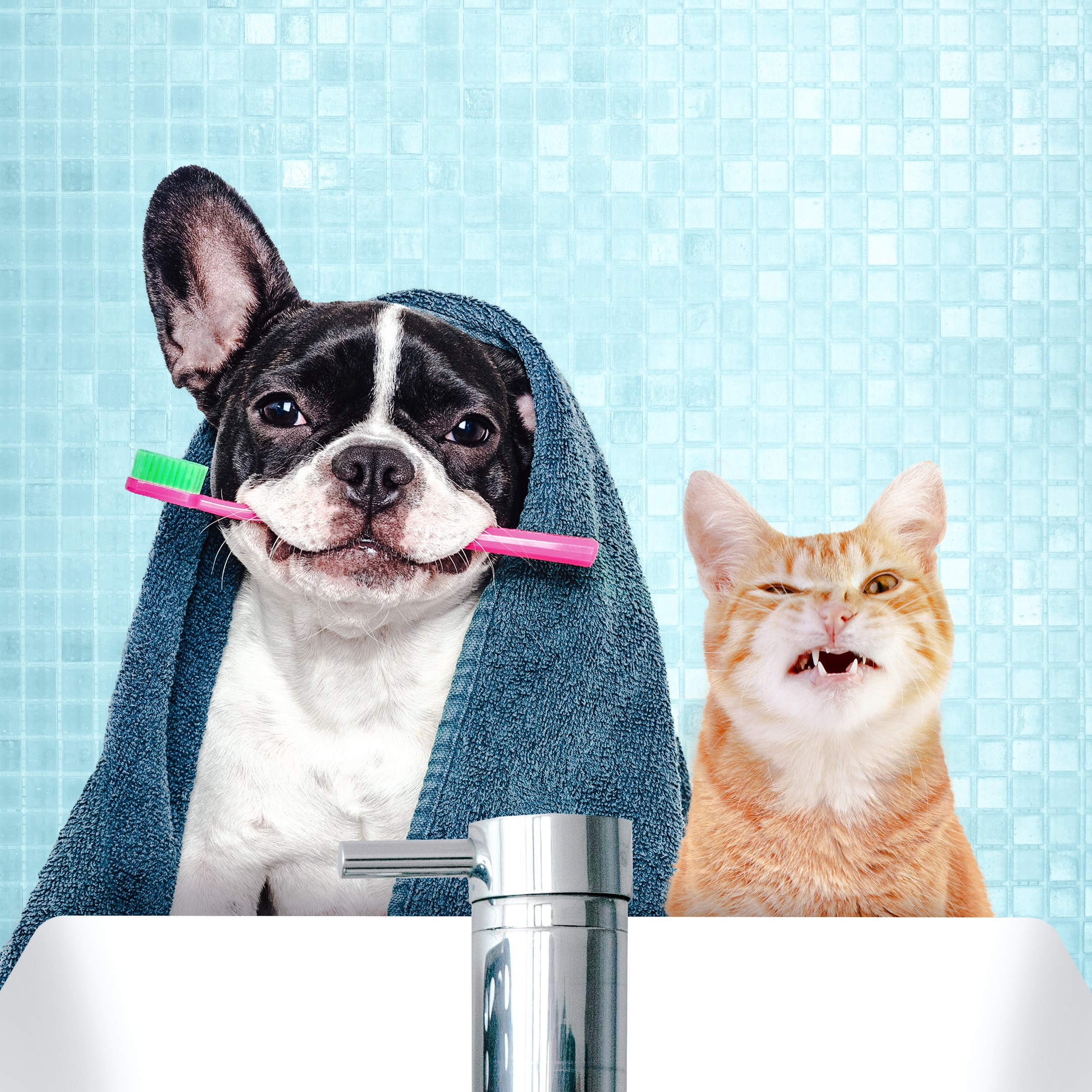
August marks National Pet Dental Health Month, a perfect opportunity to focus on your pet’s dental care. With around 80% of dogs and 70% of cats showing signs of dental disease by the age of three, prioritising oral hygiene is essential for your furry companions.
At our vet clinic, we are dedicated to maintaining those healthy smiles—both for our welfare animals and private clients. We understand that dental care plays a crucial role in your pet’s overall well-being. Regular check-ups and cleanings can prevent plaque buildup and tartar, leading to a happier, healthier pet.
Signs of Dental Issues
“Dogs and cats have a high tolerance for dental pain, making it a poor indicator of dental health,” says Dr. Nico Maritz, our Clinic Director. “We often see pets with severe dental disease who show no outward signs of discomfort. Instead of relying on pain, monitor signs like bad breath and the appearance of your pet’s teeth and gums. Healthy teeth should be white and smooth, and gums should be pale pink. If you notice brown tartar buildup, red or inflamed gums, or discharge, it’s time to seek veterinary care.”
Below, you can see the before-and-after photos of a welfare patient who had severe tartar buildup and underwent a dental cleaning under sedation.
These conditions can lead to more severe problems like gum and bone recession, ultimately causing tooth loss if left untreated.
The Importance of Dental Care
Despite the prevalence of dental issues, many pets continue to cope with their discomfort. Dr. Maritz explains, “Most dogs and cats can live with significant oral and dental health problems, so people sometimes don’t see the need for treatment. However, once these pets have their dental issues resolved—especially infections—owners often report a ‘new lease on life,’ with their pets appearing much happier and more energetic. Removing the burden of dental disease allows pets to thrive rather than merely cope.”
Tips for Maintaining Your Pet’s Dental Health
Preventing dental disease in pets requires ongoing care. According to Dr. Maritz, the best way to maintain your pet’s dental health is through daily brushing with veterinary toothpaste. “Human toothpaste isn’t safe for pets, as they swallow it, which can be harmful,” he notes.
If daily brushing isn’t feasible, consider giving your pet tough chews like rawhide, dried tendons, or dried ears from livestock. However, be cautious with bones and avoid deer antlers, as they can increase the risk of tooth fractures. Additives in drinking water are also available but aren’t as effective as other methods.
Time for a Check-Up?
If you’re curious about your pet’s dental health, now might be the perfect time for a check-up. Regular professional cleanings, along with proper at-home care, can make all the difference in keeping your pet’s smile bright and healthy.
For more information or to book a dental check-up for your pet, visit our clinic. Let’s work together to ensure your furry friend has a happy, healthy mouth!



